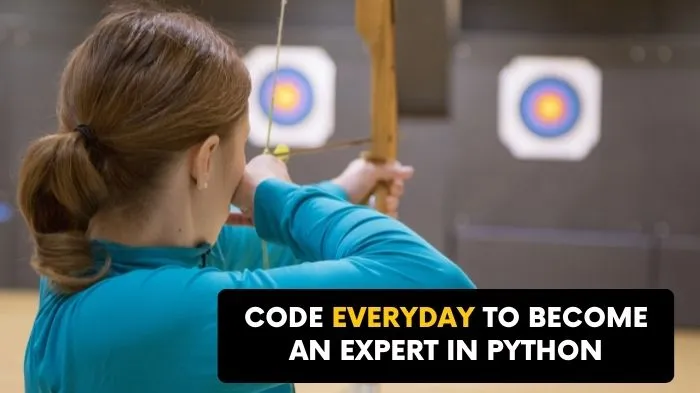How long does it take to learn Python? If you want to know the answer of this question then keep reading this post till the end. Python is one of the most in-demand programming languages for data science. There are plenty of reasons why Python has become such a popular choice among data science learners: It’s easy to read and understand, it’s very intuitive, it’s versatile, and it’s incredibly user-friendly.
The syntax of Python is clean and straightforward, making this language a great option for anyone who wants to begin learning to code. Even if you have no previous experience with coding or computer science, you can still learn Python fairly quickly.
Check out these six steps that will tell you how long does it take to learn Python?
1. Figure Out What Motivates You to Learn Python

The main reason why people are drawn to learning any skill is because of the benefits and advantages that skill provides. In the case of Python, there are a lot of advantages to learning this programming language. For example, it’s a language that’s in high demand in the job market. It’s a language that can offer you a lot of career opportunities and benefits.
It’s a language that you can use in a wide variety of industries. It’s also a language that can provide you with a lot of flexibility in your career. Another advantage of learning Python is that it’s a language that’s really easy to learn. There are a lot of resources available to help beginners learn Python.
It’s also a language that’s incredibly versatile. You can use Python to solve a wide variety of problems. You can use Python to do everything from web development to creating artificial intelligence applications. Let’s now learn how long does it take to learn Python? In the post written on the topic, let us know how to become a Python expert by knowing the basic syntax of Python?
2. Learn the Basic Syntax of Python
One of the first things you should do when you’re learning Python is to get a firm grasp on the syntax. Syntax is the rules and structure of the language. This will help you to understand how to write Python code and read other people’s Python code. One of the best ways to learn the syntax of Python is by reading the Python Documentation.
The Python Documentation includes a section at the end of the document where the syntax of the language is explained. Another great way to learn the syntax of Python is by taking an interactive online Python course.
There are a lot of online courses available where the instructor will walk you through the basics of the syntax of Python. Let’s now learn how long does it take to learn Python? In the post written on the topic, know how to code every day to become an expert in Python?
3. Code Everyday to Become an Expert in Python

It’s important to actually write code while you’re learning Python. A lot of people who are learning Python try to avoid actually writing code because they’re worried about making mistakes and not writing perfect code on their first try. But this is something you shouldn’t worry about.
No one writes perfect code on their first try. It’s something that you need to practice and get better at over time. One thing you should do is write code every day. This will help you to get into the habit of actually writing code. It will also help you to become better at writing code.
It will help you to become more comfortable with actually writing code. It will help you to become more confident with writing code. Let’s now learn how long does it take to learn Python? Know further in the post on the topic of How to create structured projects to become an expert in Python?
4. Make Structured Projects
One thing you should do while you’re learning Python is to make structured projects that use multiple elements of Python. You should try to make projects that use things like loops, if statements, and functions. This will help you not only understand how these elements of Python work, but it will also help you to see how they can be used in real-world applications.
This will also help you to become comfortable with using these elements of Python. You can also make mini-projects while you’re learning Python. You can make projects that only take a few hours to complete.
This will help you to stay motivated and engaged with learning Python. It will also help you to get experience with building projects with Python. Let’s now learn how long does it take to learn Python? Know further in the post written on the topic How to work on Python projects on your own?
5. Work on Python Projects on Your Own
The best way to learn anything is to put everything you’ve learned into practice and to work on your own projects. This will help you to get real-world experience and apply everything you’ve learned.
Working on your own projects will help you not only become more comfortable with Python but will also help you to understand how Python can be used in real-world applications. When you’re working on your own projects, you should try to push yourself and challenge yourself with every project.
When you’re working on your own projects, you can decide what you want to do with Python. You can decide how you want to build these projects. You can decide what types of problems you want to solve with Python. This will not only help you to learn more about Python, but it will also help you to push yourself and challenge yourself.
6. How Long Does it take to Learn Python?

There are a lot of factors that can influence how long it takes to learn Python. The biggest factor is your background. If you have a background in computer science, you’re going to learn Python much faster than someone who has no programming experience or no prior exposure to programming languages at all.
However, if you’re coming from a different field, such as psychology, biology, or economics, it may take some time for you to adjust to the coding environment and get past the learning curve.
As well as your background, your motivation is also very important. If you’re motivated by curiosity and the desire to learn new things, then Python will be a great fit for you. On the other hand, if you’re looking for a specific career path or just want to get something done quickly and efficiently, Python might not be the best choice for you.
Finally, how long it takes you to learn depends on how much effort you put into it. A dedicated learner who commits time and energy to learn Python will make noticeable progress much faster than someone who only reads through the code samples and tries some of the examples out for themselves.
READ MORE:
- How Long Does it Take to Become a Dentist?
- How Long Does it take to Become a Pharmacist?
- 9+ Tips to Edit Video Professionally
Conclusion
These 6 steps will get you up and running with Python fast! It’s important to remember that there is no such thing as a quick fix when it comes to learning a new skill. It will take time and effort for you to learn Python, but it’s completely possible to learn Python if you have a goal and a plan for yourself.
One thing to keep in mind is that whenever you’re learning something new, patience is key. You have to be patient with yourself, but you also have to be patient with the process of learning.